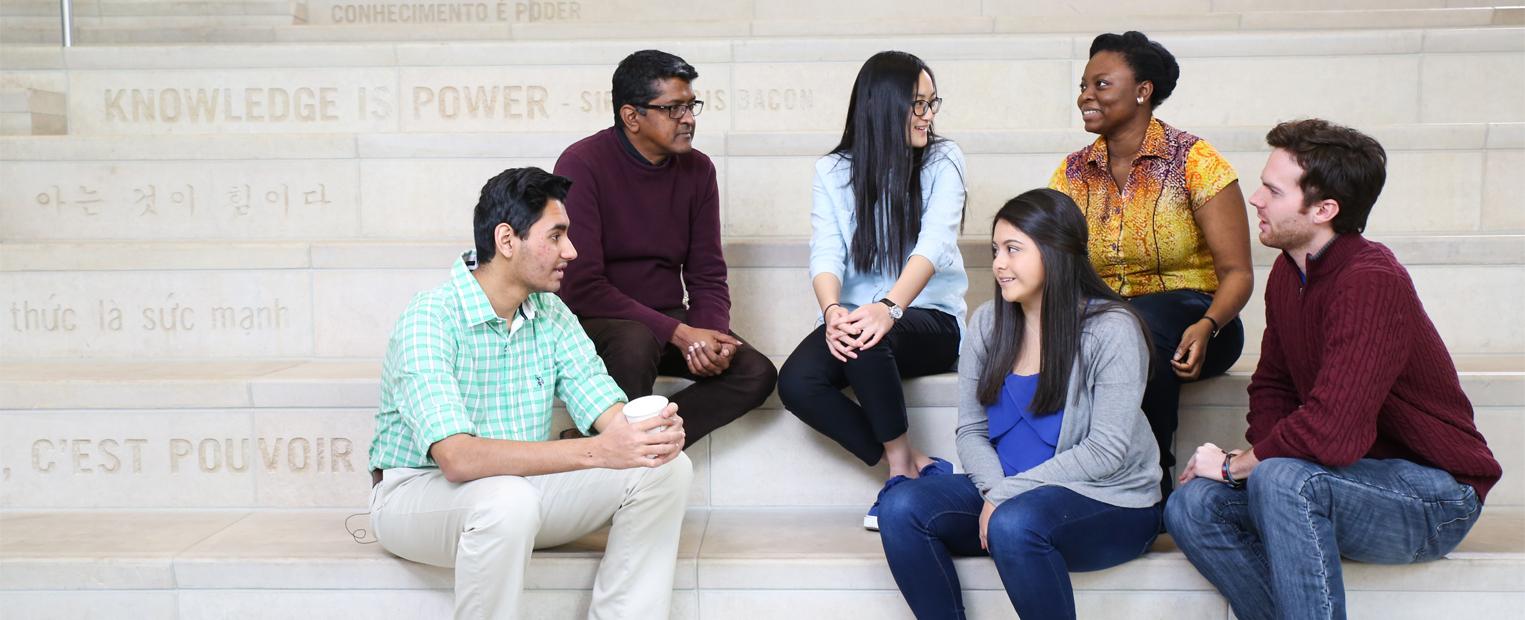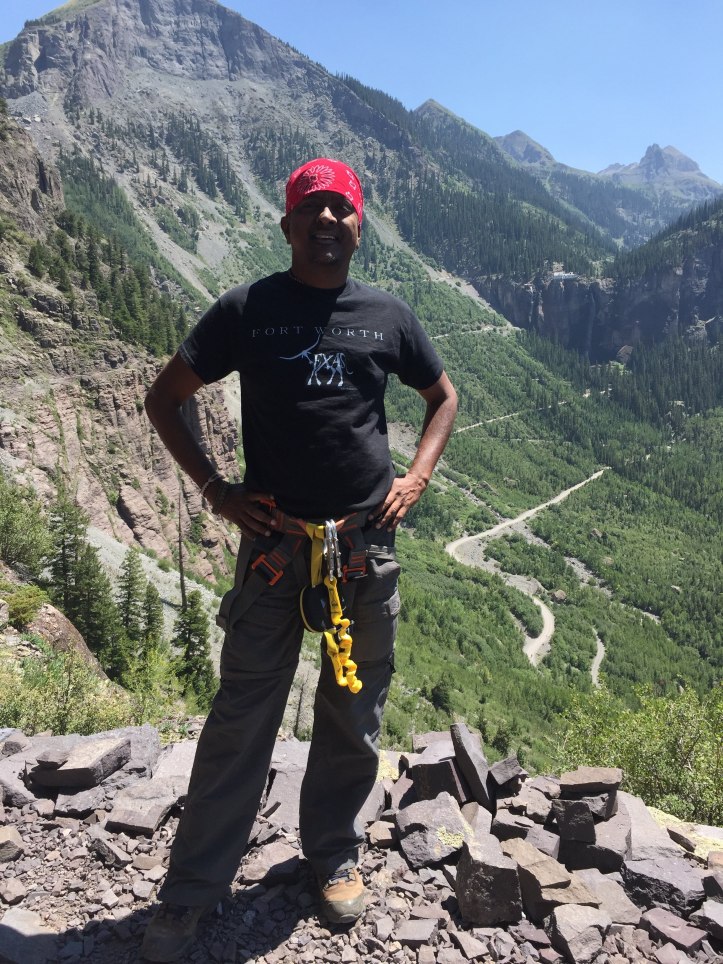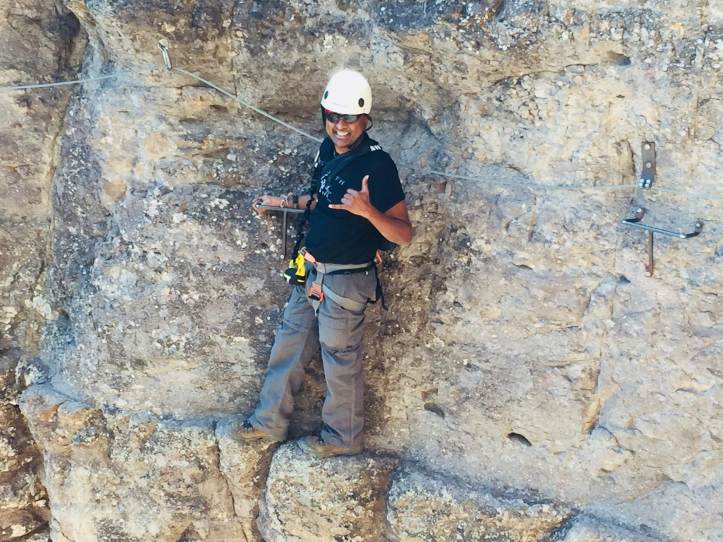
What the Teacher-Scholar Model Means for Students
Note: Dr. Akkaraju writes about the Teacher-Scholar Model, which holds that undergraduate teaching and building relationships with students is just as important as conducting research. This is an integral part of what makes TCU a unique institution and we’re thankful Dr. Akkaraju spent the time to provide his perspective!
I still remember interviewing for my job in the Biology department of TCU. I was excited and nervous, as befits someone who is trying really hard to make a good impression on his hosts, who will soon decide his fate. I remember sitting in the offices of the individual faculty members, now mostly retired, talking about their research, and my teaching philosophy and interests. What remains strongly etched in my memory of that day seventeen years ago however, is my meeting with the students. This was, and remains an important part of the interview process for any candidate interviewing for a faculty position in our department. That is an indication of how important student interaction is at TCU. I remember looking at a large group (or so it seemed) of young, expectant and excited faces, getting ready to grill me about my teaching style, my expectations, and to get a feel for who I was as a person.
To be clear, this was the reason I came to TCU. Prior to this, I was carrying out research as a post-doctoral research fellow at an institution that did not have undergraduate students. While I enjoyed the intellectual stimulation of working in a purely research environment I missed interacting with young unclouded minds. For me, this was very much about transmitting my excitement for science and recruiting a future group of scientists. For nothing gives me greater joy than sharing my joy of biology; trying to explain to people why I do what I do.
In the intervening years, I have been privileged to work with some of the most highly motivated and hard working students at TCU on research projects going on in my lab. Students generally join my lab in their junior year and stay until they graduate, a period of two years. During that time, we get to know each other quite well, given that we interact with each other, usually in a one-on-one situation, several times a week. Over time, I get to know most of my students well, much beyond their performance in their coursework or their lab work. Often, I get to meet their families, and get to know a side of them I don’t see in most of my students. Part of our relationship is of course, mentoring, as I coach them to become scientists and health care professionals. This might involve working on their general knowledge, their ability to discuss topics other than biology, like politics, for example. Working on their awareness of the world around them. To do this, I will make them read books that I think help expand their worldview. My favorite part, of course, is developing their scientific critical thinking skills. But besides that I try to make them skeptical listeners and readers, to teach them not to accept facts as given but to question everything. This can be an uncomfortable for many, but some of my students “get” what I am trying to do. While I may train all my students to be future scientists, I know most of them will go on to become doctors, dentists or physician’s assistants. I still think it is important that the students who go into these fields need critical thinking and scientific skills as well.
As part of our interactions, I try to introduce students to my culture and hobbies. I am of Indian origin and love learning about other cultures, the outdoors and travel. Most of my students have never interacted with an Indian before, so I make myself an ambassador for my culture. They get to come to my home and eat Indian food. When we are not eating Indian food, we go as a lab group to lunches or dinners at “ethnic” restaurants where they get to eat Vietnamese, Chinese and other culture’s foods. Again for many this is a difficult thing to do as it pushes them far out of their comfort zone.
To share my love of the outdoors, I take my students camping and hiking as well. Again this is my way of sharing what I love and exposing them to something they may not naturally gravitate to.

With many of my students, research with me leads to a long-term relationship after they graduate. I keep up with them long after they have finished their professional degrees. Meet with them when I travel. And reach out to them to get their professional opinion on scientific and medical issues. In many ways they become part of an extended family.
This interaction with students has continued to remain an important part of what I enjoy doing at TCU. I love watching these students spouting my clichés right back at me (“you can’t really prove anything”, is a favorite one!) Watching them become independent thinkers, develop their self-confidence to a point where they question and contradict me. Nothing makes me happier! I hope that during our journey together I provide a creatively uncomfortable space for them to push their boundaries and grow as individuals. My approach also evolves with time as I learn from my mistakes and modify it.
After seventeen years at TCU, the most favorite part of my day still is the time I leave my office and computer, walk up one floor to my research lab, hang out with my students and shoot the breeze with them.
Dr. Giridhar Akkaraju is a Professor and Biology Department Chair in the College of Science and Engineering. He teaches courses on Cell, Molecular and Developmental Biology; Virology; Molecular Biology of the Eukaryotes; and an honors seminar on The Biology of Cancer.
